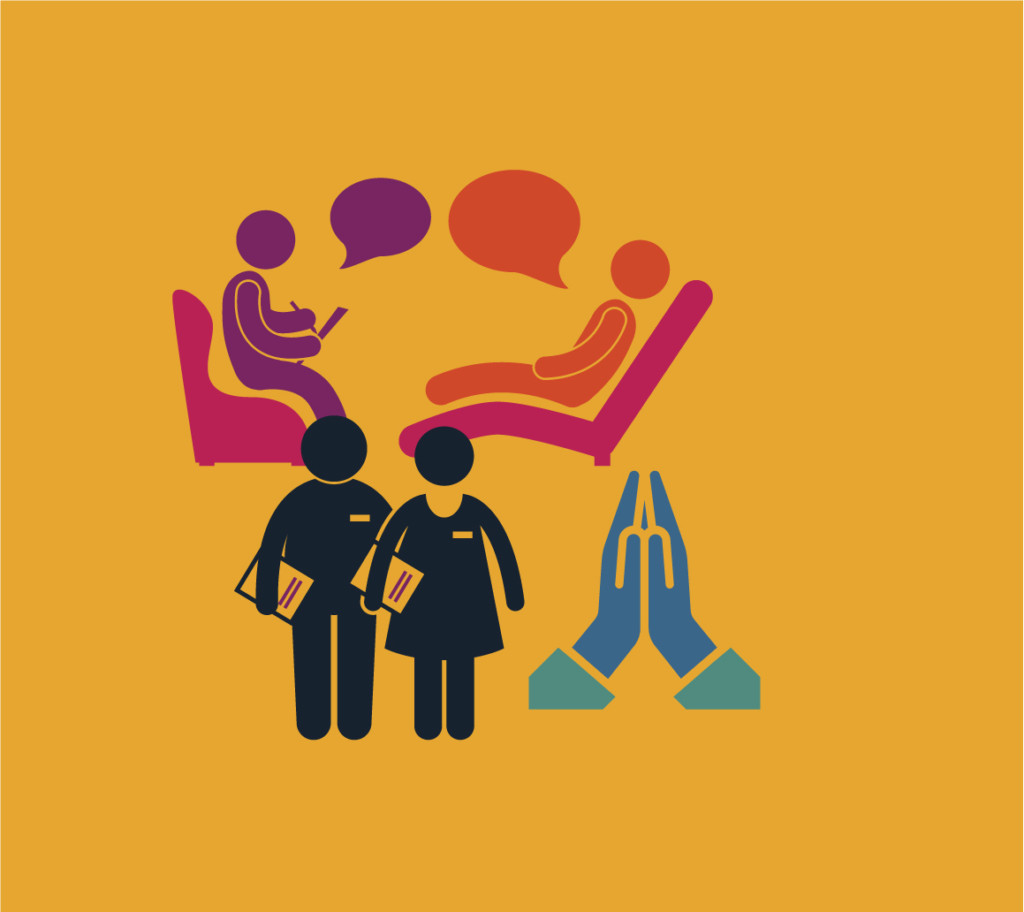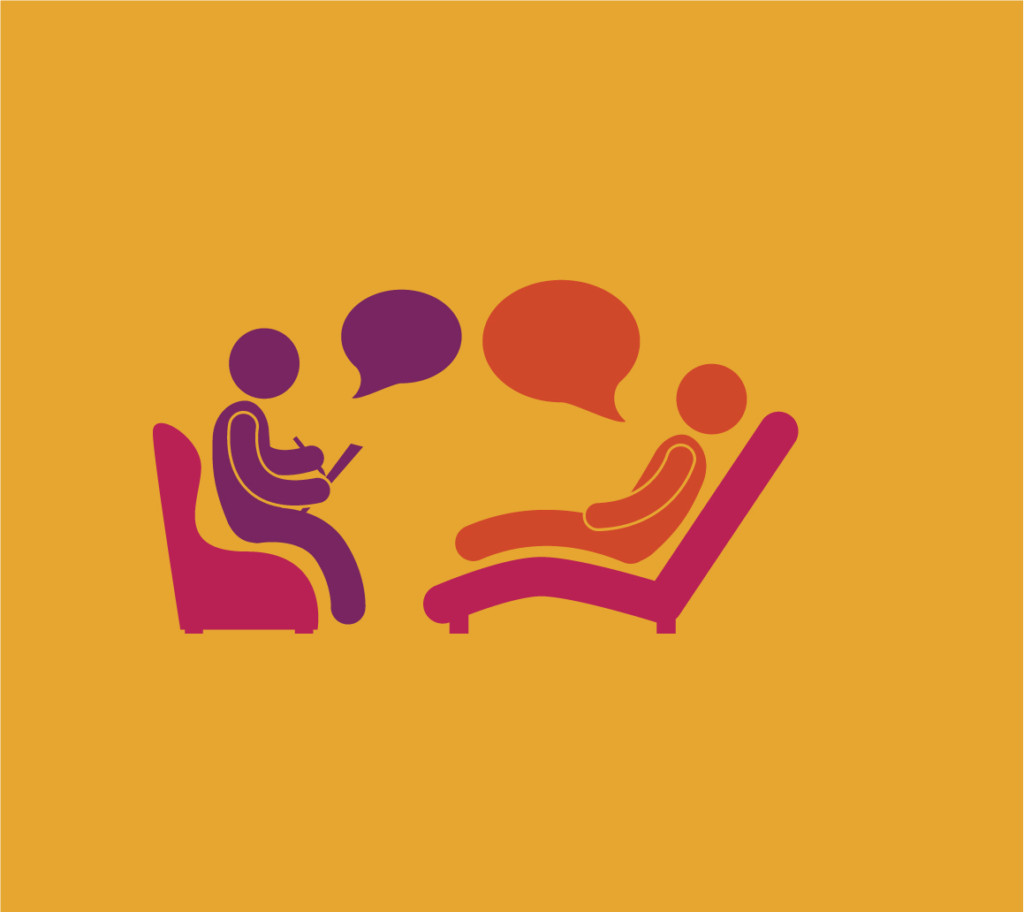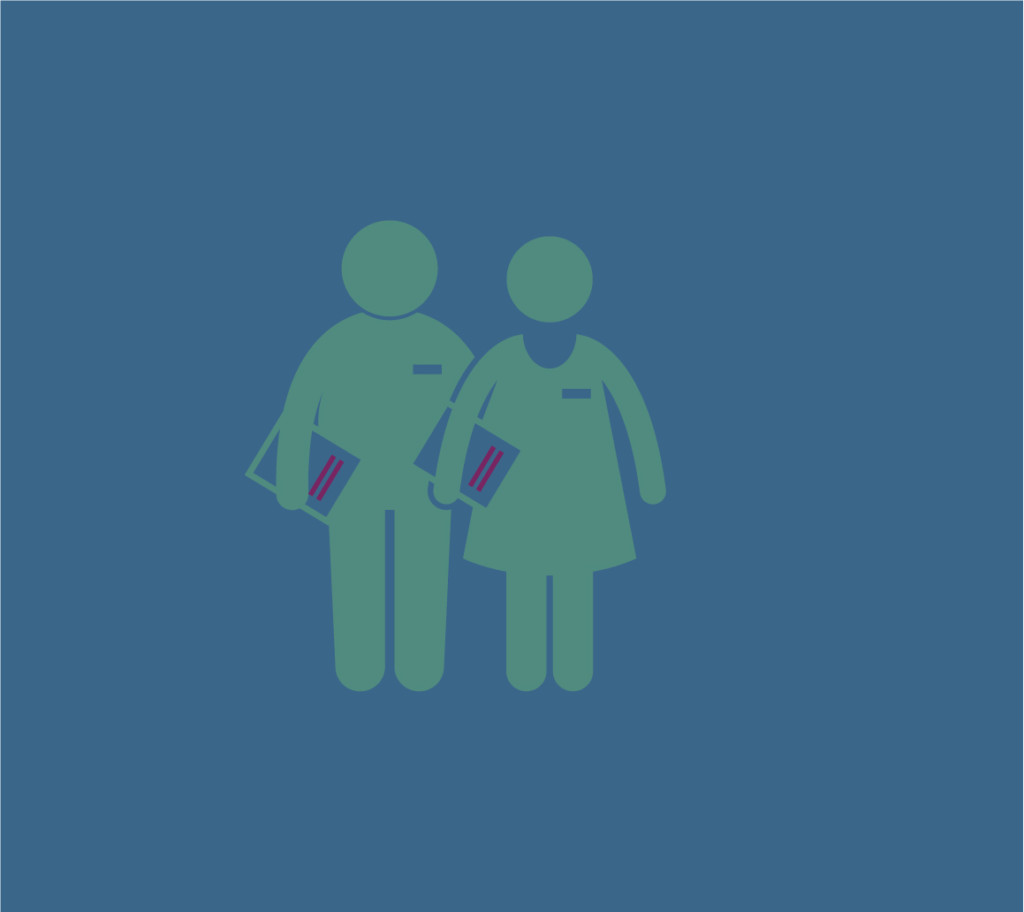You are passionate about marriage and may be one of the three specific groups we write about (therapists, marriage educators, or faith community members) in which case we have ways for you to plug in with us.
Our goal in helping marriages is to go where married people go: to trusted, natural confidence in their every day lives, and help those people be more effective and skilled.
So what does Marital First Responders training do?
We are capitalizing on the power of existing social networks to help people before their relationship problems are serious and to refer them to therapists like you when the problems need professional help. We help confidants avoid mistakes that can undermine marriages and hurt friendships, and maintain boundaries when supporting people with chronic marital problems. (Boundaries with friends and family can be extra hard for therapists who help marriages for a living, and some day we could create a whole program on that.)
We help marital first responders be more intentional, skilled, and confident when a friend, coworker, or family member confides about relationship struggles.
We have done these trainings in secular settings, religious settings, and with all personality types, with men, women, widows, divorced people, young people and old. The most exciting training (for us) was at a prison diversion center for men with drug abuse problems–they share a lot of relationship drama with one another were eager to be helpful with better boundaries.
Not known until now, based on our national research:
Therapists are perennially frustrated by how long it takes for troubled couples to seek professional help.
But who is helping those marriages now? It’s…. friends and family! These folks offer trusted ears but they may lack the confidence or effectiveness as first responders with sometimes complex relationship issues. Heck, even when therapists are in friend or family mode (not therapist mode), they often struggle with how to be helpful to people they love. It’s not surprising that the therapists who have taken the Marital First Responders training have reported learning and benefiting in their personal lives (that includes us, Bill and Elizabeth.)
Interested in learning how to become a trainer?
Click the button below to watch a video about the details.
Marital First Responders is the ultimate "upstream" program for marriages because it taps existing social networks where people first bring their problems.
We’re excited that you’re interested in learning more. You already know the importance of helping marriages before they get in serious trouble. You already know the importance of social support for marriages. And you already know that people can learn skills in good interpersonal communication.
Click the button below to watch a video about the details of becoming a trainer!
Our new research shows that your faith community is filled with marital first responders.
Imagine….
a congregation filled with marital first responders who are more effective, skilled, and confident in helping marriages in the congregation and the larger community.
Interested in learning how to become a trainer?
Click the button below to watch a video about the details.
FAQ
The origins of Marital First Responders came from discovering mental health first aid training in Australia, which started in the mid 1990s. It was a husband and wife team, the wife was a counselor, the husband was an academic. The wife had had mental health issues in her own background.
They realized they have a first aid for medical problem for physical health problems but don't have anything for mental health problems. So they created mental health first aid in which people learn about mental health issues that occur in their families, their friends, their neighbors, their coworkers, and how to be helpful to people. And when there's something serious, how to get them to good resources.
It was a breakthrough idea for Bill because we know from research that people turn first to their friends, their family members, they turn to people who are their peers well before they turn to a professional for help with relationship problems. And a lot of people don't know what to do or say when somebody approaches them.
To hear the audio of an excerpt from a recent webinar where Bill explains the background, listen below.
My impression of what's happened to Mental Health First Aid, as it migrated to the United States, is it moved from being grassroots (everyday citizens and family members and others) to more professionals and paraprofessionals, such as professional first responders. In that instance the presenters can charge a significant amount for the training because the school system or the Fire Department is paying, or it's part of continuing education for childcare workers.
The financial model for Mental Health First Aid in many parts of the US is quite different from the financial model for Marital First Responders. I would certainly check that out, but I wouldn't necessarily be optimistic of doing something together.
To hear the audio from a recent webinar of Bill’s explanation, listen below.
If you are interested in being a trainer, we do offer text for you to make your own flyers to market the Marital First Responder training. We believe most of the marketing of this idea is around personal relationships within your community and being able to talk about this in a way that is clear and compelling.
To hear the audio of Bill’s explanation of marketing with flyers versus in-person conversations from a recent webinar, listen below.
In a lot of churches there are members of the congregation who visit folks in the hospital, bring food to people at home, and visit the bereaved. Because of this, people may think of Marital First Responders as a way for the pastor to connect someone who has a marital concern with a congregant who has gone through Marital First Responders training, and that is not what this is. Marital First Responders is helping people to feel more confident and be more effective with those they already know, who come to them on their own, as somebody who is known and trusted. We do not prepare people to be confidants to strangers.
To hear the audio from a recent webinar where Bill explains in more detail how Marital First Responders works with clergy, listen below.
I don't think there's any at all. Just as there are no liability concerns when the YMCA teaches CPR. This is building capacity. This is done in a very responsible way, emphasizing boundaries, emphasizing limits, talking about referrals. I wouldn't worry at all about this.
What it requires is some marketing with people who you know, who are connected to groups and organizations that do trainings, that do workshops. You could also invite 10 or 12 of your best friends who might be interested in this and go through the day with them. After you have the training material, the next step is getting out there and getting your feet wet. And then, getting some testimonials from people who have experienced the training, and putting those testimonials (with their permission, either with or without their name) on your marketing material to help recruit for the next training.
A common push back is "We shouldn't be training people to do this, because it's too difficult and they're going to lose the boundaries, they're going to muck things up." A response to this is we know people are already turning to their friends, siblings, co-workers, etc. first. People are unlikely to go to a therapist about every day problems. If they’re going to go to a natural confidant anyway, why not train the confidant to be better? It’s about basic helping skills. When there are more serious issues going on, we teach the confidant about how to encourage people to get help.
To hear the audio of an excerpt from a recent webinar where Bill explains why Marital First Responders can be deceptively difficult for people to understand, listen below.
While we chose “marital” for the name, the knowledge and skills in the training apply to people who open up to you in a marriage or a long term committed relationship. Marital First Responders has been used with all kinds of couples. The first study of the effectiveness of this program was with LGBTQ+ couples or people who are confidants to LGBTQ+ relationships and was shown to be effective.
To hear the audio of an excerpt from a recent webinar where Bill explains how Marital First Responders is inclusive to all committed couples, listen below.
Yes! There can be a lot of laughter and normalizing of making mistakes. When you teach about the mistakes, make sure you put your own in there. It's kind of like raising the relational wisdom in a community. Because what a lot of times people do is that they just go for it, they tell somebody what they think they should do. And it doesn't work and it backfires, and they get frustrated. So people learn about listening and empathizing, how to share perspectives.
When reading from the handout, read word for word what’s on it while people have it in front of them before paraphrasing. Read it first as it is and then put your inflection on it. Show them how somebody who's trained in helping people phrases things as well as the warmth you put into it. And then paraphrase, in your own words. Don't feel like you're somehow lazy if you read what's in front of you and then give a story or elaborate on it.
The other tip is for when you do the knowledge presentations. Just go through them and move on, don’t ask for questions. If somebody has one, they'll raise their hand and that's fine, but you don't want to turn it into a seminar. Don't feel like you have to take 15 minutes of questions about each of the knowledge points. The heart of this is the skills training and the practice so you really want to make sure you emphasize that. That's where people really learn a lot.
Full day is the only way that’s recommended. We've done it Friday nights and Saturday day, that can work yet you lose some people. But you can't cover the seven skills in a half day. Some people have done it like on three consecutive evenings, but the problem there is that you have




